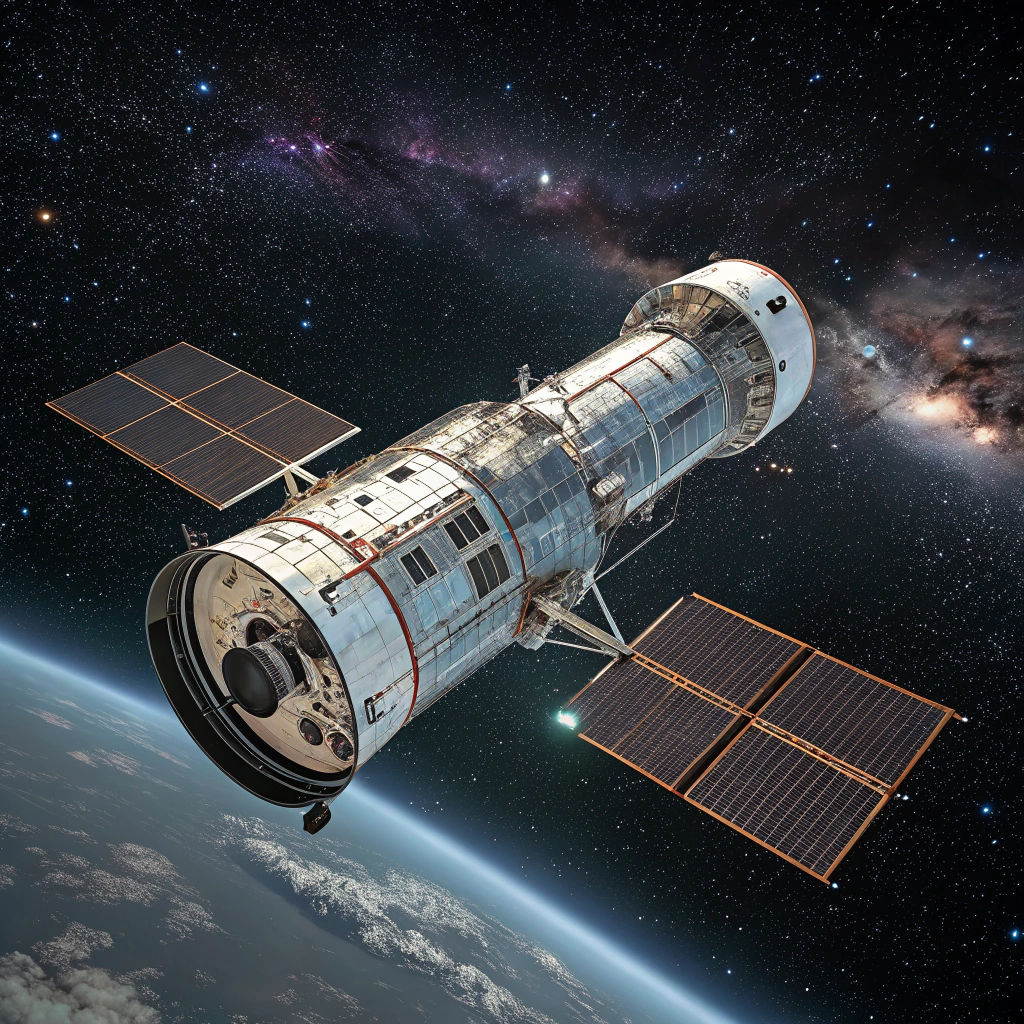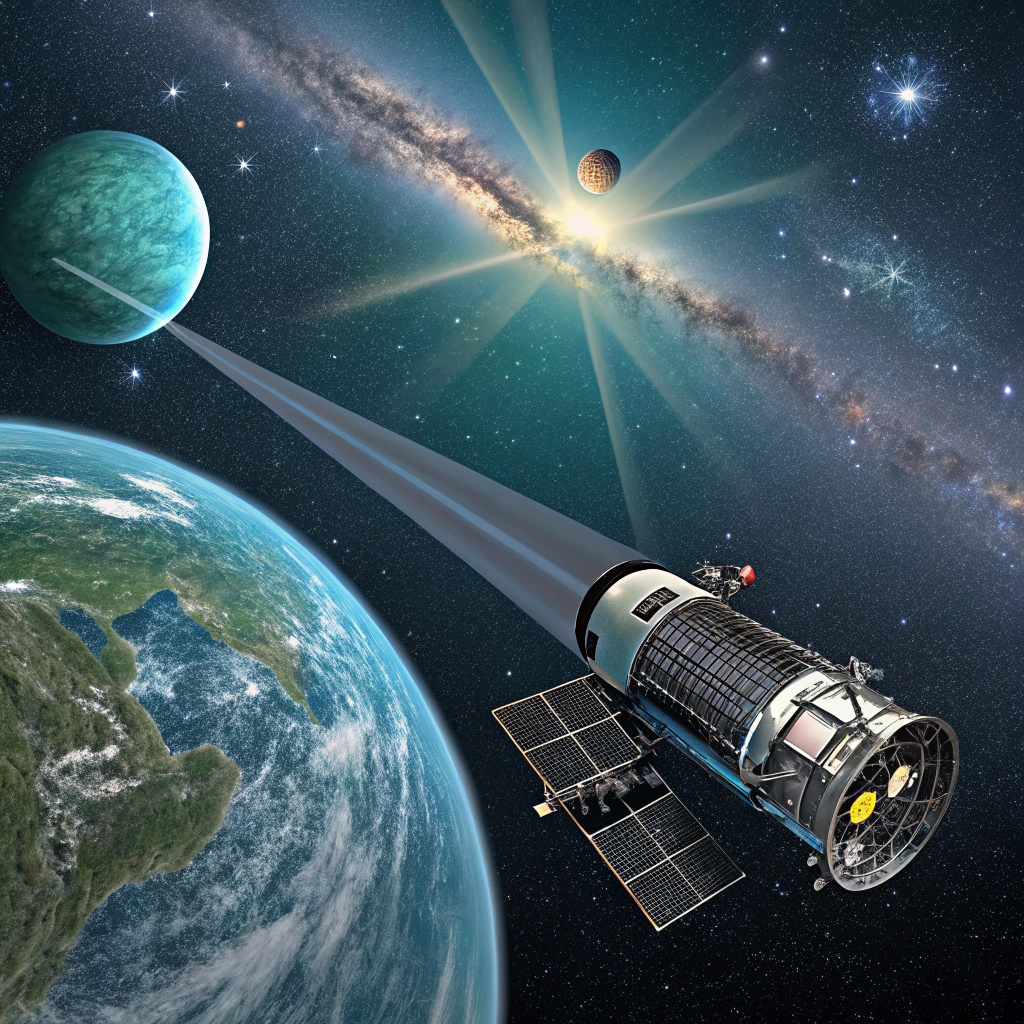Super Hubble: Nasa wants to boost alien exploration
“The Super Hubble may help answer one of humanity’s greatest and most enduring questions: Are we alone in this vast, endless cosmos? This question isn’t just a cornerstone of scientific inquiry; it is a profound puzzle that has captivated all of humanity throughout history.”

What is Super Hubble: Nasa
As our lovely Hubble space telescope has served us from 1990, from providing us some of the most groundbreaking discoveries from finding the expansion rate of universe to finding its age and much more. But The Hubble telescope’s limitations have become clear as technology has developed, particularly in the study of exoplanets, or planets orbiting stars outside of our solar system.
Building on the heritage of the renowned Hubble Space observatory, the Super Hubble is a proposed next-generation space observatory. Although the Hubble telescope transformed our knowledge of the cosmos, the Super Hubble would provide considerably more sophisticated capabilities, particularly in the investigation of far-off exoplanets and the hunt for extraterrestrial life.
The Super Hubble’s salient characteristics would be:
Better Resolution: It would be able to observe far-off galaxies, stars, and planets with previously unheard-of detail if it had a larger mirror and more sophisticated optics.
Enhanced Spectrometry: The telescope would be outfitted with state-of-the-art technologies that could analyze exoplanet atmospheres and look for indications of life by identifying important biomarkers like water vapor, oxygen, and methane.
Exoplanet Exploration: Finding habitable planets beyond of our solar system and determining whether they may sustain life is one of the main objectives of the Super Hubble.
Deeper Space Observation: By looking even further into the cosmos, it would be able to gather important information about how stars and galaxies arise as well as the general evolution of the universe.
If built, the Super Hubble would be a huge advancement in space exploration that would allow researchers to address important concerns about the origins of life and the possibility of extraterrestrial life.
How Will the Super Hubble Search for Life?

Finding evidence of extraterrestrial life is one of the main objectives of the Super Hubble. By examining the interaction of light with these far-off worlds, it will be able to determine the chemical composition of exoplanet atmospheres. The Super Hubble will be able to detect particular biomarkers—chemical indications such as oxygen, methane, and water vapor—that may indicate the existence of life through the use of sophisticated spectrometry.
These indications of life raise the possibility that we will find livable circumstances on other worlds, but they do not prove that we have found alien civilizations. The Super Hubble could help us discover extraterrestrial life by analyzing smaller, Earth-like planets.
Investigating Exoplanet Atmospheres: The Super Hubble will use spectrometry to identify important gases such as oxygen, methane, and water vapor in order to investigate the atmospheres of exoplanets. These gasses, which are linked to Earthly life processes, may be a sign of biological activity on other planets.
The telescope will search for biosignatures, which include certain compounds that may be created by living things. Finding gasses like oxygen and methane may indicate that exoplanets have habitats that support life.
Direct Exoplanet Imaging: Using cutting-edge imaging methods, the Super Hubble will directly photograph smaller exoplanets that resemble Earth in the hopes of finding evidence of water or life-supporting surface conditions.
A Step Nearer to the Big Question’s Resolution
The Super Hubble symbolizes humanity’s eternal curiosity and our shared quest to comprehend our place in the cosmos; it is more than just a tool for scientists. Philosophers, physicists, and dreamers have all been captivated by the subject of whether we are alone in this enormous galaxy for millennia. The creation of this incredibly powerful telescope opens up new avenues for exploration and gets us closer to the solution to that query.
A new age of space exploration and a paradigm shift in our knowledge of extraterrestrial life could result from the Super Hubble’s success. The possibility of finding life on extraterrestrial worlds has the power to alter human history by opening up new scientific and technological horizons and expanding our understanding of what life in the universe actually is.
